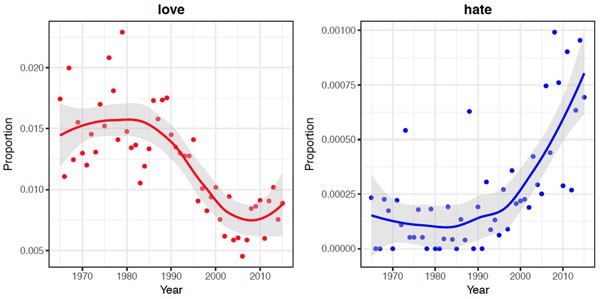
The evolution of song lyrics over the past six decades reveals fascinating trends in sentiment, complexity, and repetition. This analysis explores how lyrics have transformed alongside shifting musical genres and cultural movements.
Negativity on the Rise
Since the late 1980s, song lyrics have become increasingly negative in tone according to sentiment analysis algorithms. This trend coincides with the mainstream rise of hip-hop and rap, genres that often tackle difficult social issues through raw, unfiltered lyrics.
However, it's crucial to look beyond surface-level negativity. Many rap songs use stark language to shed light on systemic inequalities and the realities of marginalized communities. What may register as "negative" to an algorithm can carry profound social commentary and cultural significance.
Growing Linguistic Complexity
As rap ascended to dominate popular music, overall lyrical complexity increased. Hip-hop's emphasis on wordplay and linguistic dexterity elevated the sophistication of mainstream lyrics. This genre produced both playful party anthems and Pulitzer Prize-winning works, showcasing rap's wide-ranging lyrical depth.
The Ebb and Flow of Repetition
Lyrical repetition has seen two notable spikes - one in the 1980s and another from the mid-2000s onward. The first wave was driven by genres like synth-pop and new wave. The recent uptick stems from electronic dance music and pop designed for social media virality.
While often dismissed as lazy songwriting, repetition can be a powerful artistic tool when used deliberately. From protest chants to meditative mantras, repetition has the power to make lyrics memorable and impactful.
A Reflection of Cultural Shifts
These lyrical trends mirror broader cultural movements. The rise of socially conscious rap paralleled growing awareness of systemic inequalities. Increased lyrical complexity reflects expanding musical vocabularies. And the recent focus on repetition echoes our shortened attention spans in the digital age.
As we look to the future, lyrics will undoubtedly continue to evolve alongside new genres, technologies, and cultural paradigms. By examining these patterns, we gain insight not just into music, but into the shifting values and experiences of society as a whole.